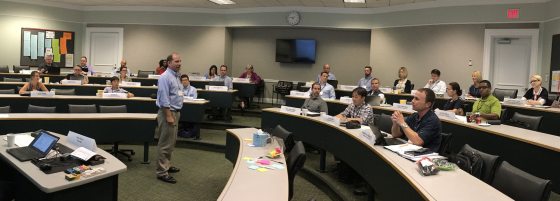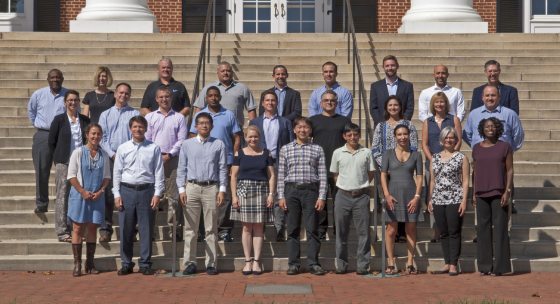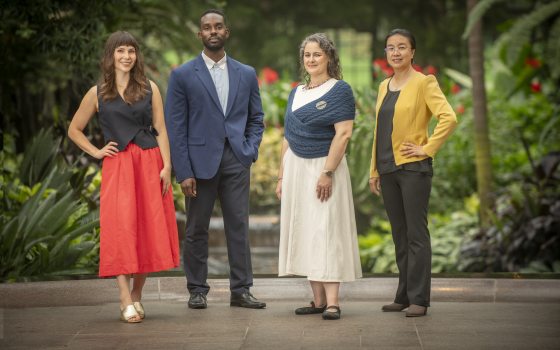Great public gardens must function as successful businesses to provide maximum impact and return on their mission. Leaders of nonprofit organizations focus on mission while also exercising fiscal discipline in order to meet their strategic objectives. For example, leaders at Longwood Gardens strive for effectiveness and efficiencies to achieve the five goals of Longwood’s 2022 Strategic Plan and, ultimately, the organization’s mission as “the living legacy of Pierre S. du Pont, inspiring people through excellence in garden design, horticulture, education and the arts.”
Business management is a very specific skill set; successful management is not the same as strong leadership. While managers are responsible for the work that yields results, leaders are responsible for setting direction and inspiring people toward a common vision. In modern business, most managers should also be leaders, and most leaders also must be successful managers. Many nonprofit leaders learn business acumen on the job, but may not come to their positions with adequate training and expertise in the techniques of business management. One of the goals of the Longwood Fellows Program is to bridge that divide: to hone the skills of leaders who have a passion for the mission of public horticulture so that they can skillfully run the business side of their organizations.

With that goal foremost in their minds, the Longwood Gardens Fellows recently completed an intensive two-week Executive Education Management Development Program at the University of Virginia’s Darden School of Business. Our particular program, “High-Performance Leadership” was a powerfully concentrated primer in leading organizations through the rigors of business analysis, tactical decision making, strategy development, change management, creating a culture of innovation, effective communications and marketing, promotion of employee wellbeing and other key aspects of leadership.

We learned alongside a diverse group of executives representing seven nations and three continents and from a business school faculty ranked as number one in the world by the Financial Times. From pharmaceuticals to banking and from technology to transportation, the varied industry backgrounds of our classmates provided a wealth of perspectives that enriched group learning and classroom discussions.
At the core of the Darden instructional model are case studies that illustrate key learning objectives and provide context for stimulating classroom discussions. While most of these focused on the challenges of commercial industries, we Fellows were pleasantly surprised that the Darden faculty presented a case study that highlighted an interesting story from our own field, “Strategic Planning at the New York Botanical Garden.” Diving into actual cases with engaging narrative and extensive data allowed students to apply knowledge every day in class through problem solving and test their instincts in debate and other manners of direct application.
The business management concepts and skills that we learned at Darden are yet another fine example of how the Longwood Gardens Fellows Program is cultivating leaders for the future of public horticulture.



